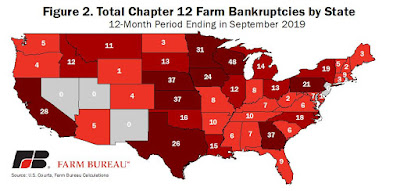Trump lies and, when he is not telling lies, he makes up policies in the middle of the night.
Donald Trump is not qualified to lead America and he is destroying our democracy❗
Echo editorial published in The Kansas City Star newspaper:
"The United States launched a trade war against Canada, their closest ally and partner. … At the same time, they're talking about working positively with Russia (and) appeasing Vladimir Putin, a lying murderous dictator. … Make that make sense."
I have thought a lot about what then-Canadian Prime Minister Justin Trudeau said at a March 4, news conference, in the aftermath of a notorious Oval Office meeting where President Donald Trump and Vice President JD Vance rudely and in a pre-planned verbal attack, lambasted Ukrainian President Volodymyr Zelenskyy for not being thankful enough for American support.
Trump then cut off U.S. military assistance to Ukraine to pressure Zelenskyy to agree to a bad deal, but he applied no pressure at all to Putin, even as he continued deadly attacks. "You should never have started it," Trump said to Zelenskyy, blaming him for Russia's invasion of his country.
Unbelievably, the Trump administration's proposed deal to end the war in Ukraine was everything Putin was asking for:
- legal recognition of Russia's control of Crimea
- unofficial recognition of Russia's control of nearly everything else it has seized since 2022
- a commitment that Ukraine will never join NATO ❗🙄
- lifting all sanctions imposed on Russia since 2014, and
- enhanced U.S.-Russia economic cooperation
In return, Ukraine would receive only a vague "security guarantee" and commitment to help rebuild, with no assurance that the United States would help provide either or details of who might. Unsurprisingly, this plan emerged after Trump's envoy Steve Witkoff met with Putin for several hours recently and had no apparent input from the Ukrainians. To get any kind of U.S. commitment for future assistance, Ukraine basically had to bribe the Trump administration separately with a favorable deal for minerals extraction.
If you're Zelenskyy, or anyone in Ukraine right now, you have to be asking yourself too:
- How does any of this make sense❓
- Why is the U.S. president blaming a democratic partner for getting invaded by an aggressive, authoritarian neighbor❓
- Why is he pushing a "peace" plan that explicitly rewards Russia's crimes❓
- What could possibly explain an approach to the Russia-Ukraine conflict that so nakedly favors Russia❓
America has inexplicably damaged ties with its allies through a pointless trade war and eroded trust with our closest partners.
With his threats to take control of Panama, Greenland and Canada, Trump is normalizing the very idea of violating other states' sovereignty, something Putin has been trying to do for years.
Also, the Trump (Republican MAGA cult) administration has stopped or gutted programs designed to combat years of Russia's gray zone warfare against the United States, including cutting funding for cybersecurity offices that fight foreign meddling in U.S. elections and disbanding the task force responsible for enforcing sanctions against Russia.
Meanwhile, Russia is the only major economy excluded from Trump's punishing tariffs so far. The Trump administration is defunding or dismantling a slew of other institutions that frustrate Putin because they combat Russian disinformation and help strengthen civil society and democracy around the world, such as Voice of America, Radio Free Europe, the U.S. Institute of Peace and the National Endowment for Democracy.
But that's not all❗ Massive cuts to scientific research and attacks on America's higher education institutions are undermining some of America's greatest strengths and contributions to the world today. America's strong and stable economy has been the envy of the world, but Trump's inexplicable trade policy is even eroding that too.
If Russia wants a weaker America, this is exactly how you get there. This column isn't long enough to list all the ways that Trump has done so yet, but you get the idea. The question then is: Why? Once you eliminate all the answers that make no sense, the answer that does "make any sense" may be the right one. The clues have been there all along. A Republican-led Senate panel that investigated Russian interference in the 2016, election found that at least 16 Trump campaign associates met with Russian officials or contacts, and special counsel Robert Mueller's report details at least 140 contacts between Trump's campaign and transition team and Russian nationals or intermediaries. But even if you dismiss those reports as part of a "Russia hoax," don't you find it odd that the Kremlin spokesperson is openly cheering how America's foreign policy now "largely coincides" with their own❓
As the old Cold War saying goes, Americans believe in coincidences, while Russians believe in making coincidences happen. Whether America is now aligning with Russia wittingly or unwittingly, only one of these two countries will reap the benefit, and it won't be ours. The sooner we admit the problem, the sooner we can stop it.
Elizabeth Shackelford is senior policy director at Dartmouth College's Dickey Center for International Understanding and a foreign affairs columnist for the Chicago Tribune. She was previously a U.S. diplomat and is the author of "The Dissent Channel: American Diplomacy in a Dishonest Age."
Labels: Chicago Tribune, Dartmouth College, Elizabeth Shackelford, Kansas City Star




















